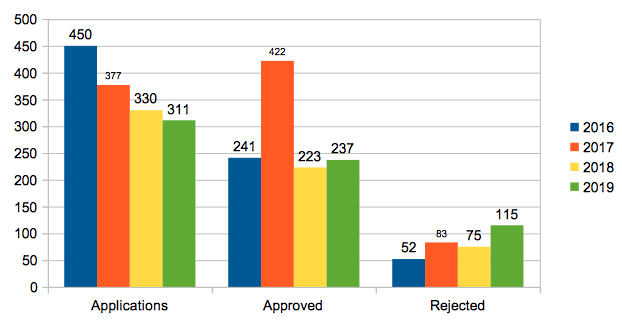Malta has published annual report on the Individual investor program (IIP) for 2019. According to the report, since the launch of the scheme until end of Jun 2019.
The IIP regulator said in the report the downward trend in applications for Maltese citizenship through the Malta Individual Investor Programme persisted during the period covered by this report in part as a direct consequence of competition from similar CBI Programmes and bad publicity.
Malta’s Programme continues to remain as highly dynamic as possible so that it will not only continue to remain in the forefront from all aspects but will also continue to attract the best applicants from around the world, said the regulator.
Here is a quick summary of the report since the launch of scheme until mid 2019.
- Investment: €1.2 billion euros raised
- Applications received: 1742
- Applications approved: 1198
- Applications refusal rate: 23% (115 applications rejected in 2019)
- Properties sold: 144 (averaging €981,000 euros)
- Donations received : €1.56 million
High refusal rate for 2019
Malta has refused 33% applications received in 2019. The data reveals out of 311 applications received, 115 cases were rejected. One major contributor to this is agents submitting poor quality applications without doing proper initial due diligence checks, passing the files to Malta. The report said MIIPA staff would have to waste time and energy in order to process applications that were destined for rejection.

Top countries
Europe and Asia is the biggest market for IIP scheme. The applications originated from these countries
- Europe – 144
- Asia – 102
- Middle East – 34
- Africa – 16
Caribbean / North America/ Oceania / South America – 2 each
Further, the report said MIIPA has for the past year also been continuously and actively considering fresh ideas, changes and innovations to the Programme with a view to making it more dynamic, more efficient and more effective in a concerted effort to project Malta’s Individual Investor Programme further up the front line in the international arena and to pro-actively promote widespread Government co-operation among the various providers of CBI Programmes world-wide.
The full report is published here





